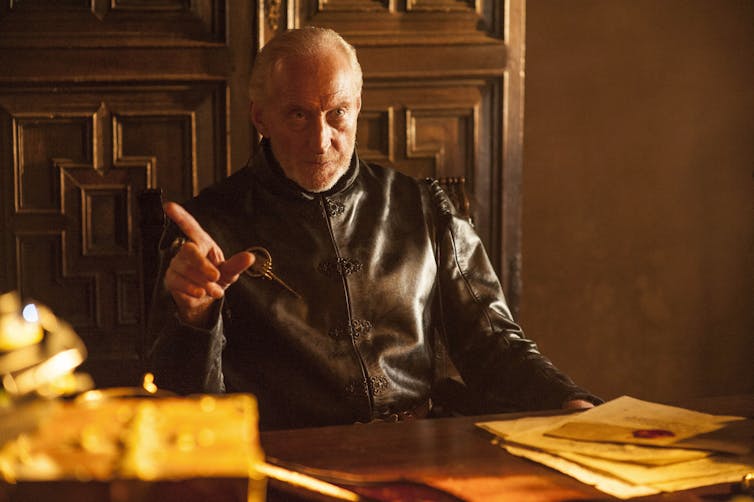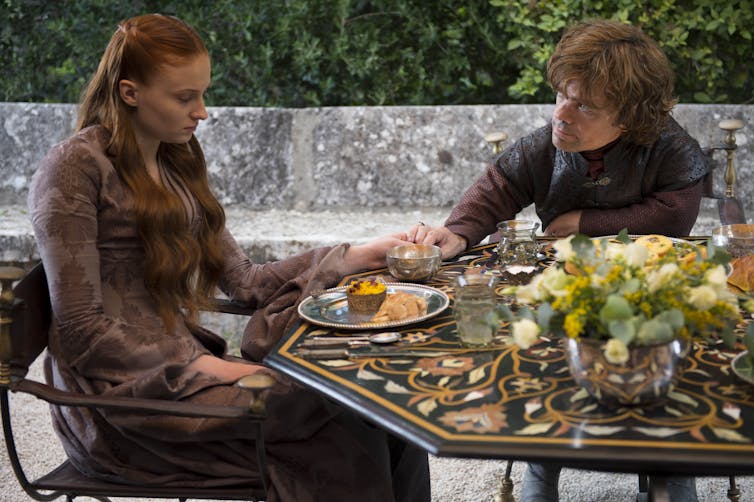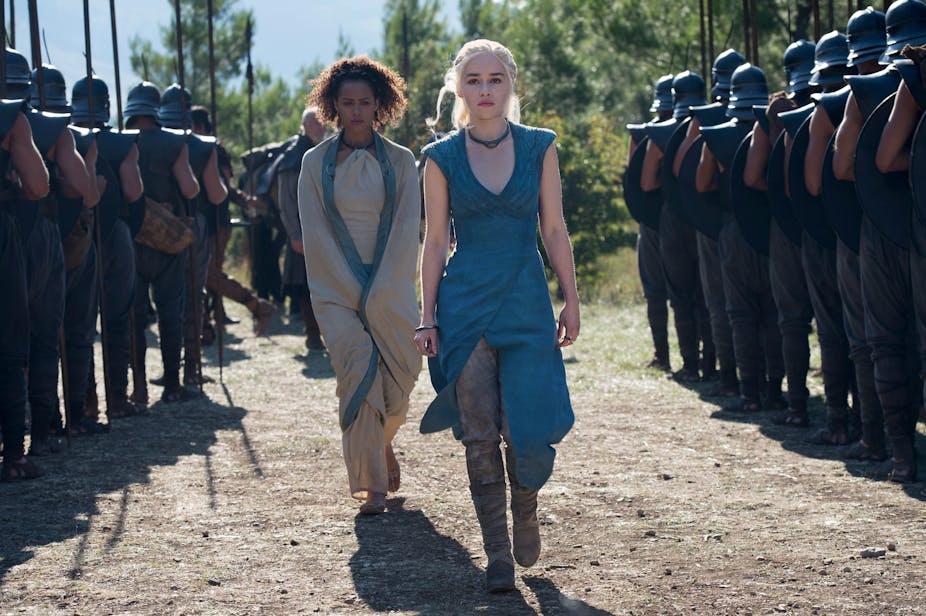SPOILER ALERT: This article contains spoilers for Game of Thrones season four, episode one.
When we first met Charles Dance’s Tywin Lannister back in season one he was gutting a stag – a none-too-subtle foretaste of his intentions for the divided House Baratheon. Three years later, and Game of Thrones’ fourth season opens with a pre-credits sequence in which Tywin not only melts down and re-forges the sword that once belonged to the terminally honourable Ned Stark, but tops off the procedure by lobbing a dead wolf into the pool of molten metal while the Lannister song The Rains of Castamere hums menacingly in the background.
Given Tywin’s predilection for symbolic animal murder, we can only hope the Lannisters never make an enemy of anyone whose sigil is a basket of kittens. It’s a potent, bombastic opening and the episode that follows lives up to it. The episode is series writer D B Weiss’ directorial debut, and the best season opener that the series has had so far.
After the mass Starkocide of the Red Wedding, the final episode of season three was a space for both characters and viewers to adjust to what was effectively victory for the Lannisters and their allies. It was comparatively calm and wide-ranging, and felt more like a traditional start to a season than the end of one. With this scene-setting already done, and with the Stark-Lannister conflict resolved, Two Swords feels like a consolidated and energised opener to an Act Two of a larger, ongoing saga.
Throughout, this is an episode underpinned by the idea of family. Jamie and Cersei struggle to adjust to their new situation in King’s Landing, with Jamie divided between loyalty to the Lannister name, and loyalty to his incestuous family with Cersei. John Snow has re-joined his “brothers” in the Night’s Watch, but interrogation by its commanders reveals just how much he had been changed by his time with the wildlings. Daenerys’s followers call her “mother”, but can she be both a mother to her people and The Mother of Dragons?

Two new characters, Oberyn Martell and his lover Ellaria Sand (played by Pedro Pascal and Indira Varma respectively), gesture strongly towards even older family conflicts. Nominally present in King’s Landing for Joffrey’s wedding, Oberyn reveals his sister was married to Rhegar Targaryen, and both she and her children were murdered by Tywin Lannister at the end of the previous war in Westeros. It’s a subtle echo of the Red Wedding, and a reminder of another family butchered by Tywin. A dark presence on the periphery for three seasons, it now feels like Tywin Lannister is being moved closer to the centre of the story, as we are reminded just how much grief and death he has been responsible for.
But it’s the Stark girls, Arya and Sansa, who get what might be two of the best moments from the episode. Sansa’s is more subtle, but possibly indicates a bigger change for the character. She is briefly reunited with Ser Dontos, a drunk she once saved from Joffrey’s wrath. Until now, Sansa has been mostly defined by passivity, afraid to do anything but submit and stay alive in the hope that her family would rescue her. The presence of Ser Dontos, though, reminds both her and us of the one time she took action and saved a man’s life. It seems to promise that Sansa might find the confidence to act again, and to rescue herself. But then again, this is King’s Landing, where everybody lies …

The episode ends with Arya recovering her long-lost sword “Needle”. If Ned’s re-forged sword was the first, then Needle is the second sword of the episode’s title. There’s a nice dissonance between the shot that closes the episode – Arya on a white horse, carrying a sword with a name – and the dead men it took to get her there. As a character, Arya has always seemed at her best when the writers pair her with brutal, ruthless men like Tywin, Jaqen h’ghar, or the Hound. And in that final image, it is not clear if she is a hero riding to avenge her family, or another murderer in the making.
Before the episode aired, George R R Martin revealed the possibility of concluding the series with a feature film. If it wasn’t a tempting prospect before, it is after seeing the quality of the writing in this episode. The ambiguity, complex characters and expansive canvas that Game of Thrones is renowned for could potentially translate into epic cinema free from convenient heroic clichés and moral simplicity. The one reservation is the sheer scale of the story on offer. Ambitious and thrilling on television, Game of Thrones’ greatest strength might be that it’s too big for cinema.

